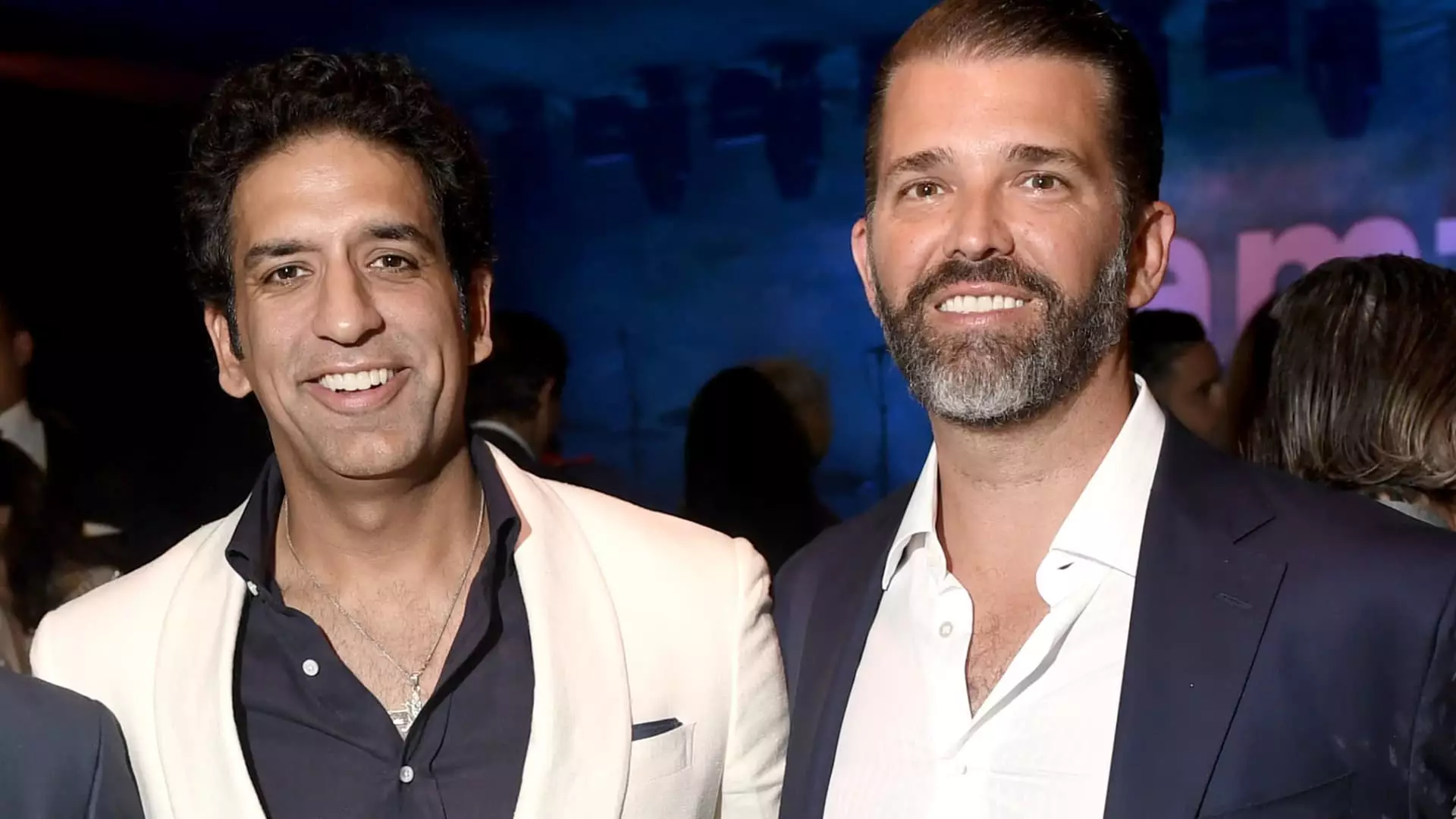In an age where social and economic divides seem to widen with each passing day, the unveiling of Executive Branch, a new private membership club in Washington, D.C., signifies an alarming trend towards exclusivity among the already privileged elite. Co-founded by Donald Trump Jr., alongside a roster of incredibly affluent partners, this club charges a staggering half a million dollars for membership. As we grapple with issues like income inequality and systemic disenfranchisement, the emergence of such a club begs the question: are we witnessing the birth of a new, coded language of power, accessible only to the wealthy?
Executive Branch is not just another social club; it’s a social experiment that intertwines politics and wealth in a very conspicuous manner. Imagine a place designed not only to enable social networking but also to reinforce the halls of power with an even thicker veneer of exclusivity. At a time when financial accessibility is more crucial than ever, this elite gathering spot epitomizes the kind of insularity that encourages a culture of entitlement among the privileged. The promise of exclusivity through an exorbitant fee not only perpetuates a narrative of “who belongs” in elite circles but reflects a dangerous backslide into a feudal mentality.
The Overwrought Glitter of It All
What makes this venture outrageous is its impressive lineup of influential figures. Attendees at the opening gala included members of the Trump administration, captains of industry, and well-heeled investors—all congregating within the walls of this gilded fortress. Although these luminaries might view the club as a way to foster collaboration and new ideas, one can’t escape the notion that it serves as a microcosm of how power operates within narrow bands of the establishment. By creating spaces where only the affluent can connect, the founders contribute to a power dynamic that marginalizes wider societal voices.
The presence of key political figures at the launch sent ripples through D.C.’s corridors, reminiscent of the influence and access once desired at Trump’s now-infamous hotel. Shouldn’t we be concerned that Executive Branch could become a hub for policies shaped in the interests of the few rather than the many? While patting themselves on the back for being part of an “exclusive” club, are these members ignoring the pressing issues—like healthcare, climate change, and education—that impact the lives of everyday citizens? This misplaced sense of importance breeds a detachment that can be detrimental to democracy.
Socioeconomic Consequences
Trump Jr.’s Executive Branch reflects a troubling only-in-America brand of politics where money speaks louder than the needs of the populace. As symposia on the climate crisis unfold, as the housing market sags further into unaffordability, as college tuition continues to skyrocket, an exclusive $500,000 membership fee seems not just a snub but an affront to the idea that in America, opportunity should not be dictated by wealth. In many ways, it represents a harsh commentary on how societal capital has become a prerequisite for influence within the political sphere.
As the club prepares to open in Georgetown, the ethical ramifications could potentially resonate far beyond its high-priced walls. The vetting process aimed at excluding media and lobbyists underscores an unsettling trend toward insulating policymakers from the broader public scrutiny—a more clear-cut departure from democratic ideals. The measured exclusivity flaunted by Executive Branch sends a strong signal, indicating that those with the financial resources to join will have a disproportionately louder voice in shaping public policy.
The Illusion of Networking
The allure of networking amongst like-minded elites may serve immediate personal interests, but the long-term ramifications are far from benign. Will meeting in this posh setting stimulate progressive policies, or will it simply engender high-stakes deals concentrated in the hands of a few? A robust democracy thrives on diverse viewpoints and comprehensive dialogues with all societal segments. Executive Branch, however, signals an obvious retreat from those ideals toward an enclave where the powerful can craft a future only for themselves.
In this socio-political landscape, the invigorating call for inclusivity must not get drowned out amidst this bubble of privilege and exclusivity. As Executive Branch steps into the limelight, we must critique its implications—not just as citizens, but as stakeholders in a society demanding accountability, equity, and a genuine conversation that includes a broader range of voices. The walls of exclusivity need to be torn down, not elaborated upon with gilded edges.

